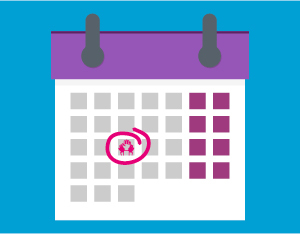Keen to make a positive impact through volunteer work, but no idea where to start? Here’s how to find (and land) a gig that helps you give back; in a role you’ll find rewarding.
Volunteering offers plenty of personal and professional benefits. Aside from helping you build your skills, networks and confidence, it’s a great way to find fulfilment outside of work and make a positive impact in an area you’re passionate about.
That said, recent research conducted for SEEK found one in five Kiwi’s are unsure how they can personally support a charity or not for profit (NFP) organisation. Fear not, here’s our handy five step plan for finding – and landing - your perfect volunteering opportunity.
- Identify your passion
You’re more likely to deliver value to an organisation if you’re interested in the cause, so finding an opportunity that you’re passionate about is important. Ask yourself:
- What causes are close to your heart?
- What are your main interests and hobbies?
- What tasks do you get the most enjoyment from?
- What do you wish you could change or improve?
- What do you consider your greatest skills to be?
- Determine your time capacity
You need to be realistic about how much time you can commit to volunteering. Whether you have only an hour a week, or one day a month, there will be opportunities that enable you to have an impact. It’s always best to be upfront with an organisation about how much time you have available so they can find an opportunity that works for both of you.
- Consider your motivation
Why do you want to volunteer? Is it because you primarily want to make a positive impact? Is it to gain new skills or develop in your career? Is someone else pushing you to volunteer? Being honest about what is motivating you will help you find a volunteer opportunity that you’ll be able to thrive in and is mutually beneficial for both you and the organisation.
- Start looking for opportunities
There’s plenty of ways to search for your ideal volunteer role, for example:
- Browsing the thousands of opportunities that are listed on the SEEK Volunteer website (you can filter the results to fit your specific requirements.)
- Researching your local not for profit or charity organisations and calling to see if they are in need of an extra pair of hands.
- Keeping an eye on local community boards or newspapers for advertised volunteer roles.
- Finding out if your work has an employee volunteer program.
- Getting in touch with your TAFE, University or employer to find out if they have any volunteer programs you can join up to.
- Asking around at work or when you’re out with friends to see if anyone else has heard of opportunities or join local interest groups on Facebook – word of mouth is very powerful in the NFP sector.
Remember, if you don’t find the right role immediately, don’t give up; new opportunities become available every day.
- Apply for positions as if they’re a paid opportunity
Just like when you apply for a job, most volunteer roles will ask that you submit a detailed application, especially if they’re advertised via SEEK Volunteer. As you would in a cover letter, make sure you take the time to highlight what appeals to you about the volunteer role and why you think you’d be a good fit for the organisation.
Don’t be afraid to follow up. We know it can be frustrating when you throw your hat in the ring for a role and then don’t hear back from the advertiser, but just remember that many NFP organisations are short-staffed and often run largely by other volunteers, so be patient and don’t be afraid to pick up the phone first.
Whatever your passion, there will be something out there to help you give back. Keep your eyes and ears open, have a professional resume ready to go and follow up with enthusiasm – even if they don’t have the role for you, they might just recommend an organisation who does!
Source: Independent research conducted by Perspicacious on behalf of SEEK. Interviewing 4k Kiwis annually




